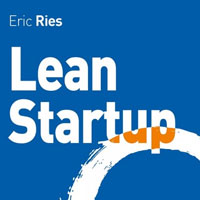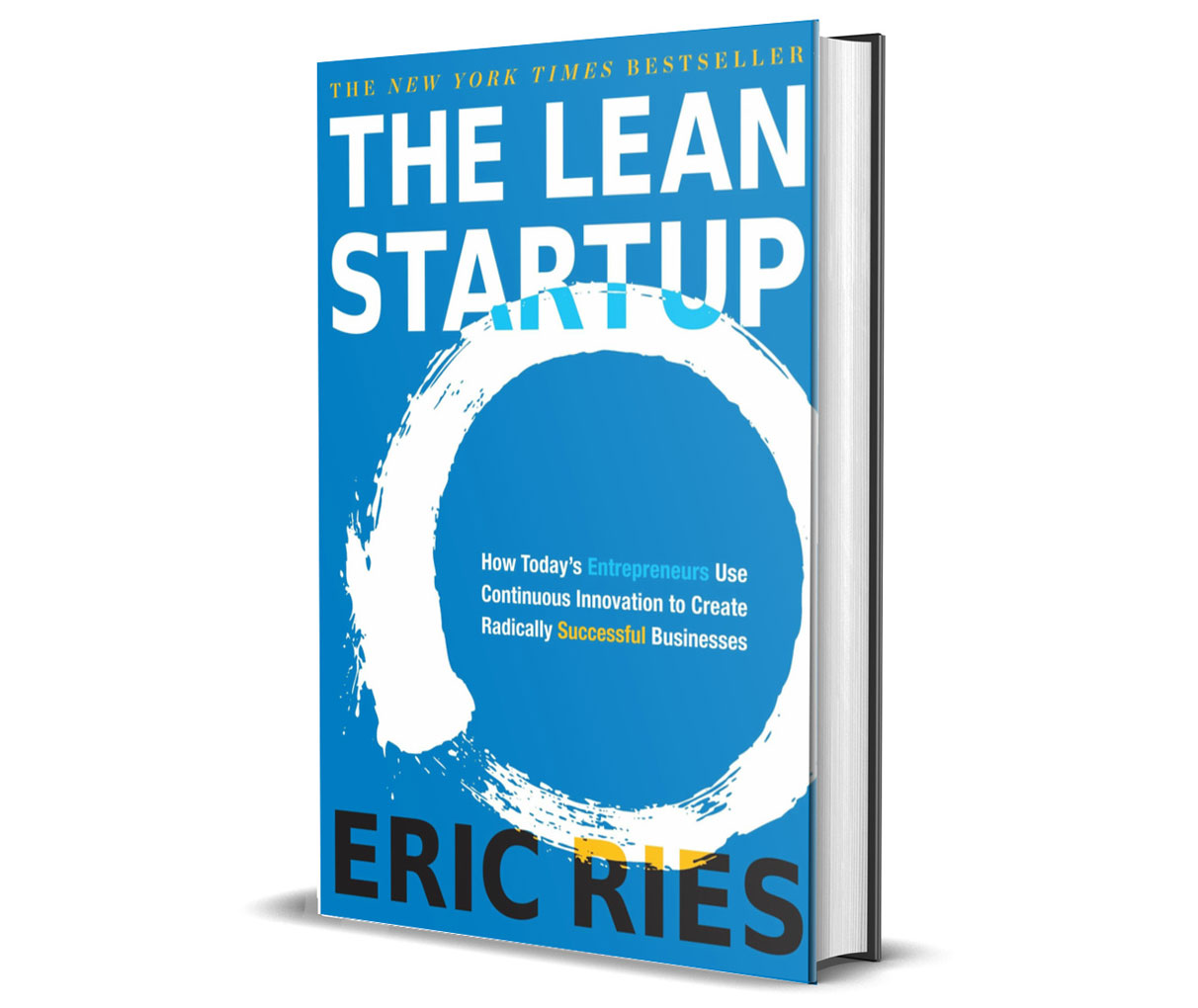General information about the book
Title: The Lean Startup
Explanatory Title: How Today’s Entrepreneurs Use Continuous Innovation to Create Radically Successful Businesses
Publisher: Currency (Crown Publishing Group)
First Publication: 2011
ISBN / Pages: 978-0307887894 / 336 pages
Category: Entrepreneurship / Starting a new business / Startups
About the Lean Startup author | Eric Ries
Eric Ries, born in 1978, is a Yale graduate mostly known because of his now classic book “The Lean Startup.” The content of this book is mainly based on online posts he published earlier on his blog, Startup Lessons Learned.
Ries started his career journey as a programmer. After a few failures in various startups, IMVU was the first business that got real traction and received investment. Co-founded in 2004, IMVU remained in the market even till now. However, Ries stepped down from operational positions in 2008 and remained a board member. Most of what Ries has written in his books and preaches today as the lean method has roots in these successes and failures.
Over a decade, with the help of other friends, authors, and like-minded people, he has fine-tuned and furthered his Lean Philosophy or Lean Methodology model. Nowadays, many people worldwide believe that lean thinking, as a flexible and agile process, is a reliable model for leading startups through the path of success and growth.
Ries says that he has decided to devote himself full-time to the Lean Startup movement, the term he frequently uses to show his ideas’ vast, significant, and sustained effect.
The lean mindset
As Ries mentions several times in his book, the idea of The Lean Startup is inspired by lean thinking in Japan’s automotive industry, especially Toyota Manufacturing System. Lean thinking, in his words, means looking for value-creating processes and trying to eliminate waste.
But thinking lean in the startup world is much more complicated than in the automotive and other physical industries. It’s easier to find waste in a factory or most traditional businesses. But when you run a startup, you explore the uncharted waters of uncertainty.
A human institution designed to create new products and services under conditions of extreme uncertainty.Eric Ries
This is the reason that he tries to integrate scientific thinking under the label of validated learning into his lean startup model. It should be noted that scientific thinking is much broader than what he refers to. And what he describes as scientific thinking is just an essential subset of the scientific paradigm: insisting on the importance of experiments.
Lean Startup meaning
Considering the above description, the Lean Startup is a method for developing a business or product using experimentation and iteration (Or, as Eric Ries calls it: The Build-measure-learn feedback loop). It’s based on learning and feedback instead of pre-planning, correction instead of perfection, and data instead of prediction.
Validated learning
In traditional businesses, with a known and stable environment, it’s easy to set a vision and define some milestones on the way. But startups are supposed to be operated in uncertainty. Otherwise, they won’t be called startupDefininging time-based milestones and allocating phase-based budgets are not meaningful and effective in such a situation.
Here’s one of the lean startup principles: Each case of validated learning should be considered as an achieved milestone on the way forward. Validated learning is so essential in the lean mindset that Ries literally equates it to the startup’s raison d’etre:
How the Lean Startup methodology differs from the traditional approach
The traditional approach to founding and developing a startup was akin to the classic entrepreneurship roadmap:
- Writing a detailed business plan (even if you are sure that you can’t stick to it)
- Making financial projections (even if you know that everything is uncertain)
- Designing and creating the perfect product in secret before making a full-force launch
In the traditional approach, in the early stages, the entrepreneur and business know everything about the product, and the market knows nothing about it. But in the so-called lean startup methodology, the business and the market are discovering (or somehow co-creating) the perfect product together in a never-ending path of experimentation and learning.
Selected sentences from the book
A human institution designed to create new products and services under conditions of extreme uncertainty.Eric Ries
This book may not be suitable for you if…
Although Eric Ries believes that the application of lean startup ideas is not limited to startups, his book is heavily oriented towards online and digital businesses or at least businesses with a serious software core.
Therefore, if you are not running such a business, you can find similar or more valuable ideas in the books classified under the design thinking category. Or in other words, if you are already familiar with design thinking principles, The Lean Startup will not have too much to teach you.
The Lean Startup Summary
There are many different summarized versions of The Lean Startup on the web. Kim Hartman’s summary is one the most accurate and useful summaries accessible for free. As this file is about 30 pages long, it’s more than a summary, and it could be called a synopsis of the lean startup.
You can download a PDF version of the summary either from his website or the link below (also available in ePub format):
The Lean Startup Summary (PDF)
The Lean Startup Summary (ePub)
Selected book reviews
10 Years Since ‘The Lean Startup’ (Forbes | Ryan Gray)
Book Review: The Lean Startup (Financial Times | Philip Delves Broughton)
Links for buying the book
The Lean Startup (Paperback) – Amazon
The Lean Startup (Audiobook) – Audible







